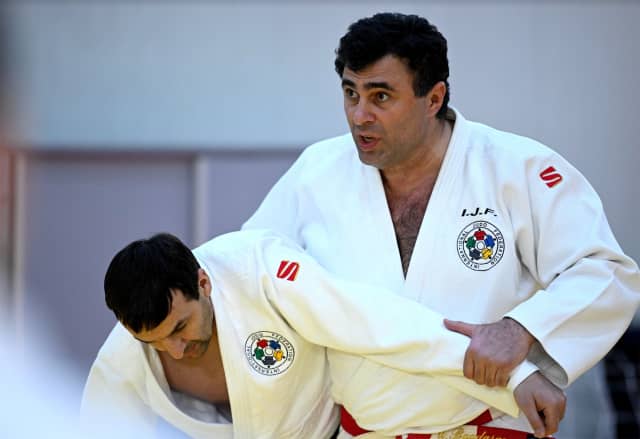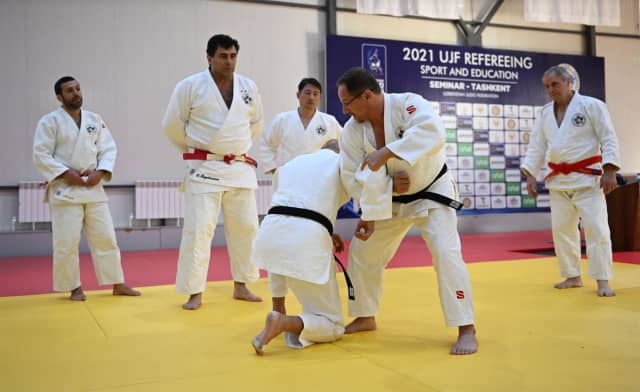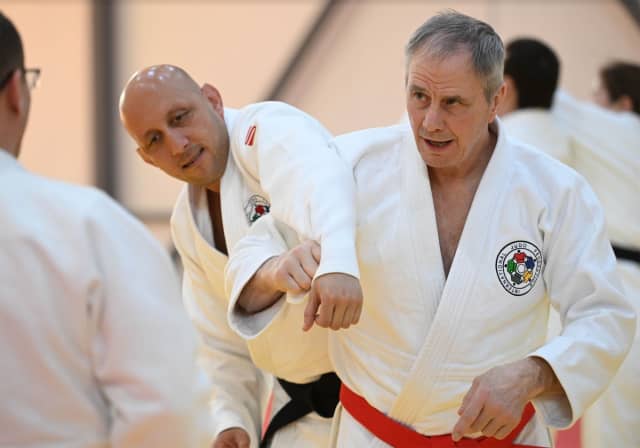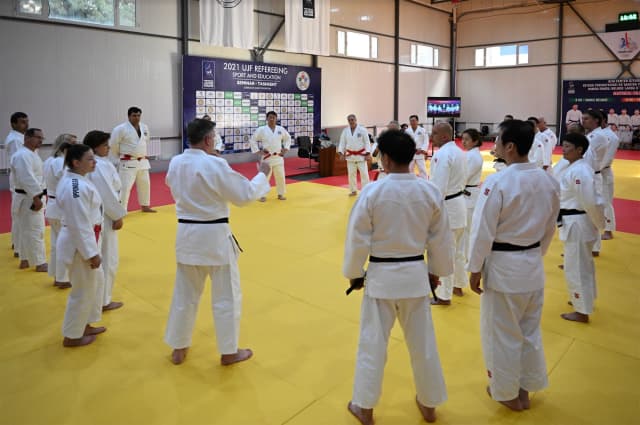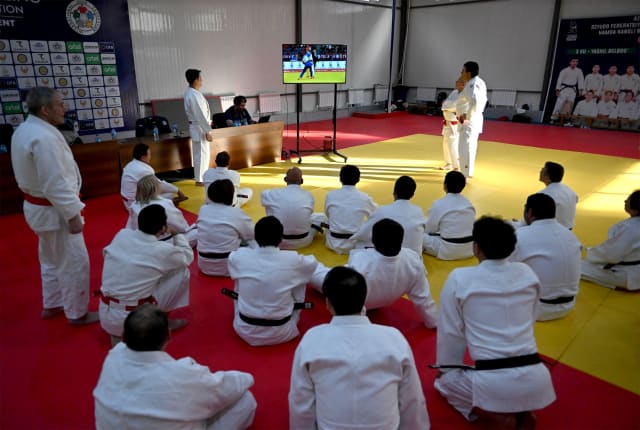Moreover, it is not only the referees who meet. On the eve of the Tashkent Grand Slam 2023, there were the 15 referees of the tournament but also the referee directors and supervisors, the director of education, the doctor of the IJF, the media department and finally the video technician, coming together to talk about the topics of the moment.
Refereeing has always been a topic of discussion and will undoubtedly remain so. There will always be the pros and cons, the respectful and the vindictive, the attentive observers and the millions of judoka who want to referee without being a referee. Such is the law of sport and the law of society.
The work carried out during these refereeing seminars is therefore crucial. If they takes place between experts, among the best in the world, their purpose is to clarify the points of the rules which could lead to confusion or interpretation and it is for this reason that it is important to share the information.
Here in Tashkent, as was the case in Tel Aviv not so long ago, the main subject concerned armlock attacks in tachi-waza. On the menu, te-gatame, hara-gatame and waki-gatame. These techniques when applied in tachi-waza can be dangerous and the referees are therefore asked to stop the fight and award a shido. On the other hand, when these movements are combined or followed by a throwing technique or an attempt to throw, the risk of endangering the health of the opponent increases and the penalty is hansoku-make.
It should be remembered that Jigoro Kano himself, when he created judo, eliminated all the techniques from jujutsu that could prove dangerous. Since 1882 and the foundation of our sport, it has evolved. Competition appeared, then the high-level tournaments with the judoka becoming more and more prepared, more and more sharpened and it is therefore quite logical that according to the changes brought to judo by its intrinsic evolution, adaptation continues to be made.
The other important topic of the moment concerns head-dives, which were already banned, but with the rule now being reinforced. Any support on the head to help with the execution of a movement or to avoid being projected, when it is the head which touches first, is sanctioned with a hansoku-make, whatever the zone of the skull concerned. On the other hand, if there is prior or simultaneous support from the arm or the hand, on the shoulder or on the knee, for example, the movement is considered valid and a score can be given.
Other important topics were also discussed in Tashkent, including reverse seoi-nage when uke has no idea what is happening, the difference between sankaku grip standing or on the ground, the correct application of ude-garami on the ground with the lock on the elbow and not on the shoulder.
The importance of these discussions cannot be overstated. It is crucial that the referees can speak with one voice and for this, the refereeing seminars with presence on the tatami and practical application of the situations, are essential. The presence of the IJF doctor was a very interesting addition because he was able, on the basis of detailed medical evidence, to explain why certain situations should be considered potentially dangerous.
All the work done in Tashkent was based on the last Tel Aviv Grand Slam. In two weeks in Tbilisi, the work of the referees will be concentrated on the observations of the Tashkent Grand Slam and so on.
If the refereeing rules are fixed in time for the duration of the Olympic period, it should not be forgotten that judo is constantly evolving and that the competitors are continually adapting. The aim of refereeing is to be able to designate the correct winner of a match but also to preserve the physical integrity of the participants, participants who themselves serve as role models for young people who do not always have the same physical abilities and the same preparation. Something that might go smoothly with well-trained athletes, could be devastating for younger practitioners. In the future, even more in-depth work could also be carried out with the coaches, in close cooperation with the Education and Coaching Commission.
Make way for the athletes and the spectacle of the Tashkent Grand Slam now and see you soon in Tbilisi for a new refereeing seminar. When we watch this competition or another, never forget that there is a huge amount of work done behind the scenes to ensure that everything happens in the best conditions and to allow judoka to express themselves fully.



